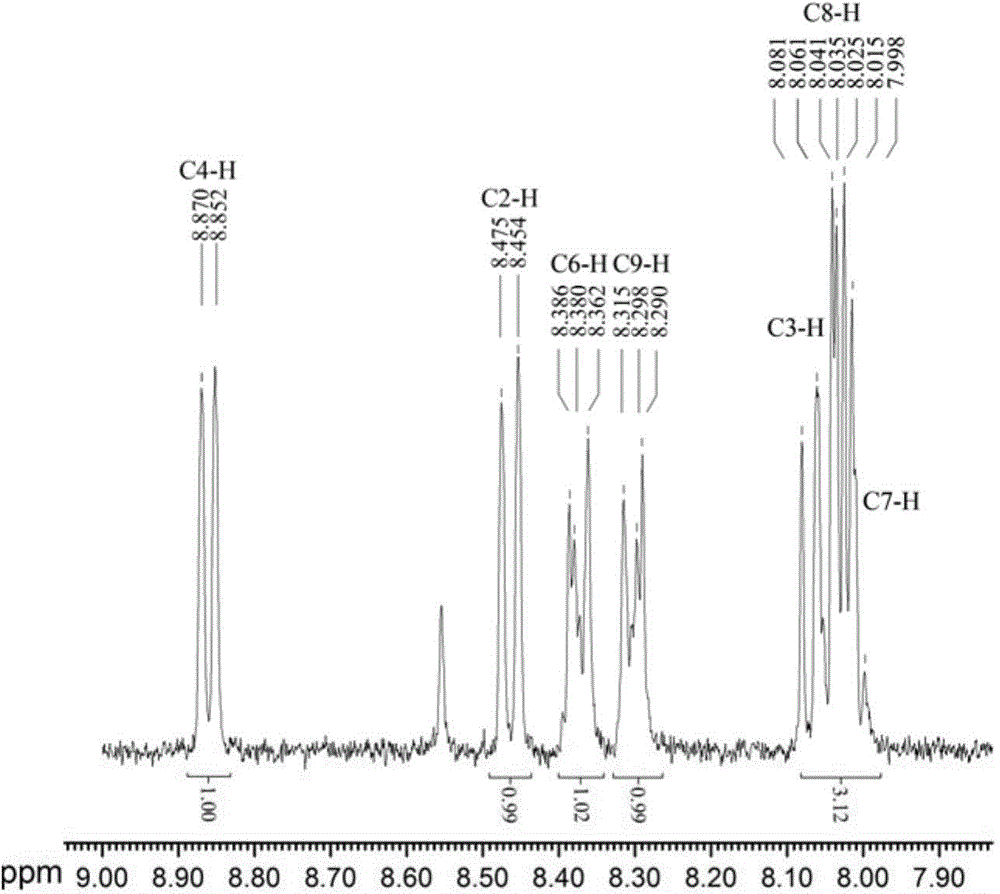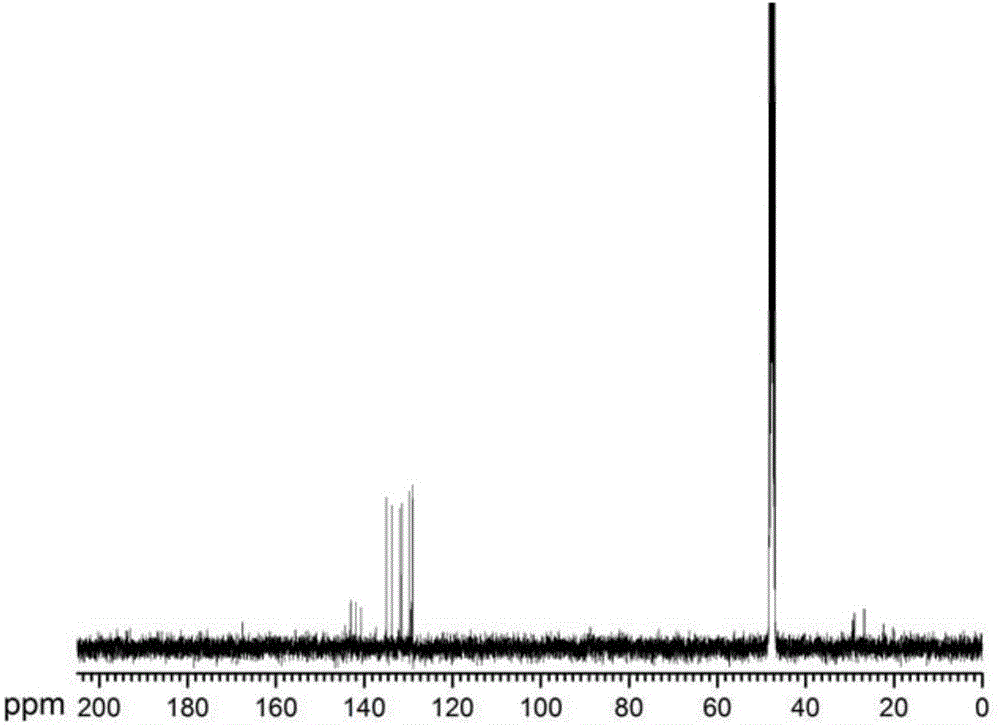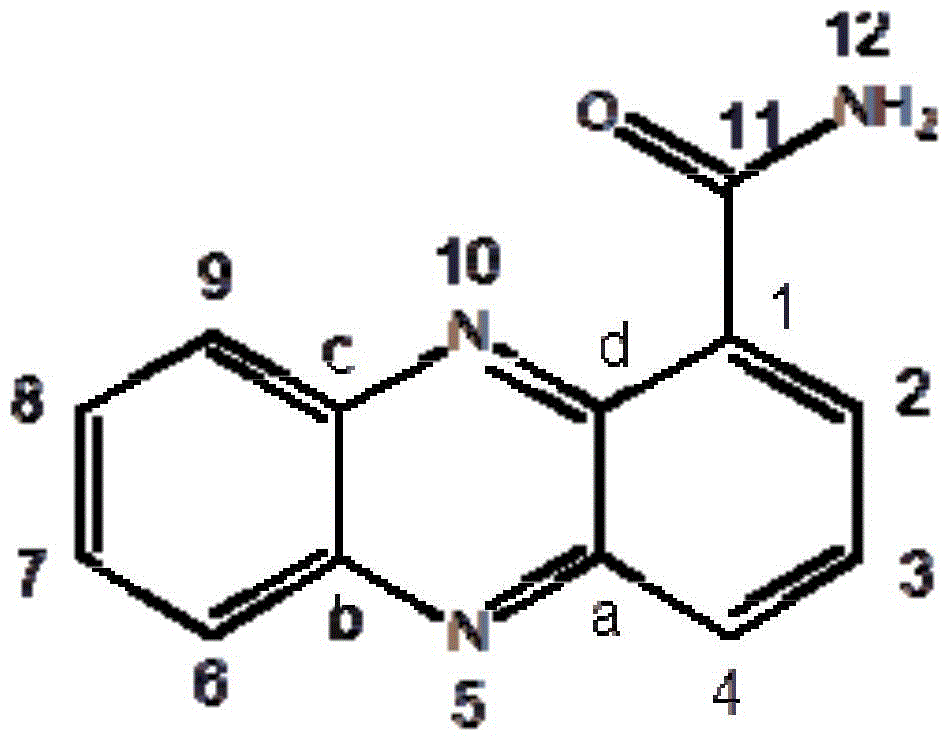Genetically engineered strains for producing phenazine-1-carboxamide and uses thereof
A technology of genetically engineered strains and formamide, applied in the field of bioengineering, can solve the problems of low yield and efficiency of phenazine-1-carboxamide, achieve broad-spectrum antifungal activity, simple and easy production process, and environmental friendliness
- Summary
- Abstract
- Description
- Claims
- Application Information
AI Technical Summary
Problems solved by technology
Method used
Image
Examples
Embodiment 1
[0046] Preparation and identification of embodiment 1, phenazine-1-carboxamide
[0047] 1) Activation of Pseudomonas chloropinus strains: Prepare solid LB or KMB medium respectively; take out the frozen Pseudomonas chloropinus HT66, inoculate it on the solid medium and activate it at 26-32°C for 48 hours, then transfer to Plant on a new solid medium, and continue to pass for 2 to 3 times;
[0048] 2) Seed preparation of Pseudomonas chloropinus: prepare liquid LB or KMB medium; pick a ring of activated bacteria, inoculate into 50mL liquid medium (packed in a 250mL Erlenmeyer flask), and place at 26-32°C Shake culture on a constant temperature shaker for 10-20 hours, and the speed of the shaker is 150-5000 rpm. Then, the seed solution is further transferred to 1000-5000 mL of liquid medium, and cultivated under the same conditions to obtain a large number of vigorous and robust seeds;
[0049] Wherein, the composition of the LB medium is as follows: each liter medium contain...
Embodiment 2
[0056] Embodiment 2, the construction of rpeA gene in vitro mutant
[0057] Using the plasmid pUCGM as a template, the gentamicin resistance gene aacC1 was amplified. Design of primer 5'-TATTAA based on the sequence of rpeA in the genome of Pseudomonas chloropinus HT66 TCTAGAC CTGTTCAGCCGTTCCGAAT-3' (XbaI, such as SEQ ID NO.3) and 5'-AATTAT GAATTC - CCACGCCCAGTTGATCCT-3' (EcoRI, such as SEQ ID NO.4), using the genomic DNA as a template to amplify the corresponding fragment in the genome. The PCR product was connected to the pMD19T vector, transformed into Escherichia coli, and the plasmids were extracted for verification, and the plasmids pMD19TA and pMD19TG were obtained. These two plasmids were digested with ClaI respectively, purified through the column, and connected with T4 ligase to obtain the plasmid pMD19TAG. Using EcoRI The shuttle plasmids pEX18Tc and pMD19TAG were double digested with XbaI, and the digested products were purified through a column, and the obta...
Embodiment 3
[0059] Embodiment 3, the construction of psrA gene in vitro mutant
[0060] Using the pBS(kan) plasmid as a template, a 1.0KMB kan gene (Kana resistance gene) was amplified by PCR. Primers were designed according to the sequence of the psrA gene in the genome of Pseudomonas chloropinus HT66, 5'-TT AAGCTT ACGGTCGGGTCGTCGCTGCATA-3' (HindIII, such as SEQ ID NO.5) and 5'-AA GAGCTC CGCTGTTCATGCCACGGATAAAG-3' (SacI, such as SEQ ID NO. 6). Using HT66 genomic DNA as a template, a 1.5KMB psrA gene was amplified by PCR. After digestion with HindIII and SacI, it was cloned into the same site of the pEX18Tc plasmid to obtain the recombinant plasmid pEX18Tc-psrA. The competent cells of E.coli DH5α were transferred to make them resistant to tetracycline.
[0061] The kan gene and the recombinant plasmid pEX18Tc-psrA were digested with SphI respectively, and after recovery from rubber tapping, they were ligated overnight using T4 DNA ligase. The ligation product was directly heat-sho...
PUM
 Login to View More
Login to View More Abstract
Description
Claims
Application Information
 Login to View More
Login to View More - R&D
- Intellectual Property
- Life Sciences
- Materials
- Tech Scout
- Unparalleled Data Quality
- Higher Quality Content
- 60% Fewer Hallucinations
Browse by: Latest US Patents, China's latest patents, Technical Efficacy Thesaurus, Application Domain, Technology Topic, Popular Technical Reports.
© 2025 PatSnap. All rights reserved.Legal|Privacy policy|Modern Slavery Act Transparency Statement|Sitemap|About US| Contact US: help@patsnap.com



